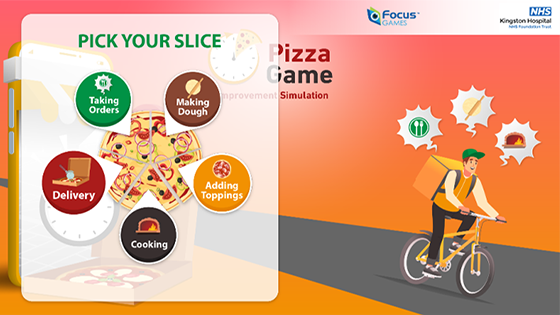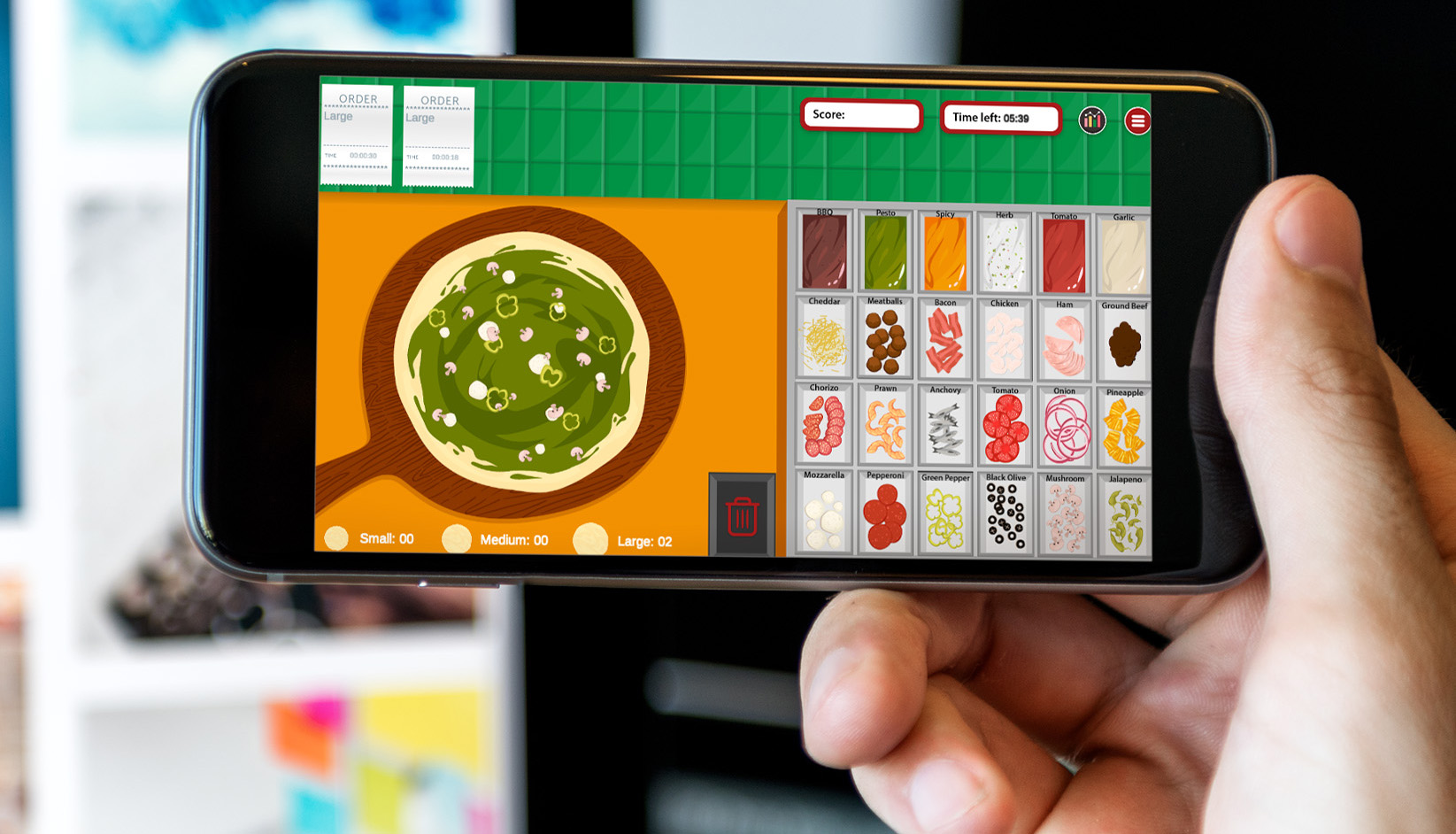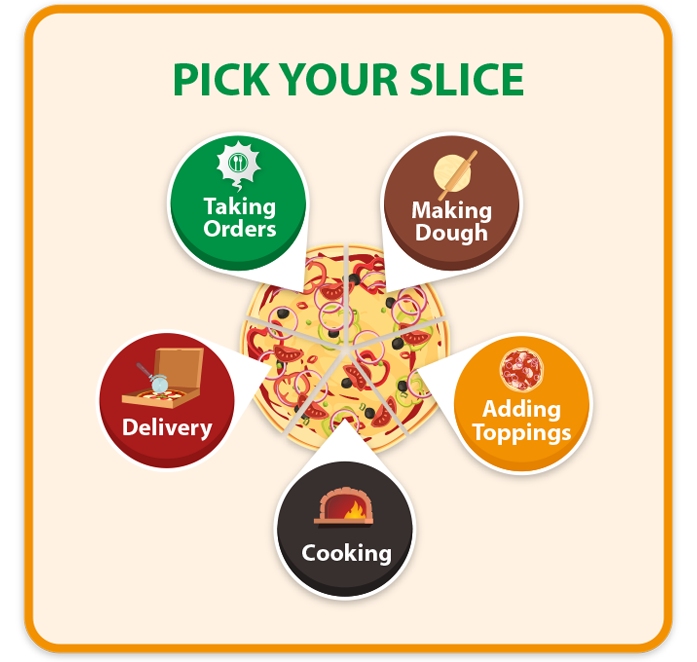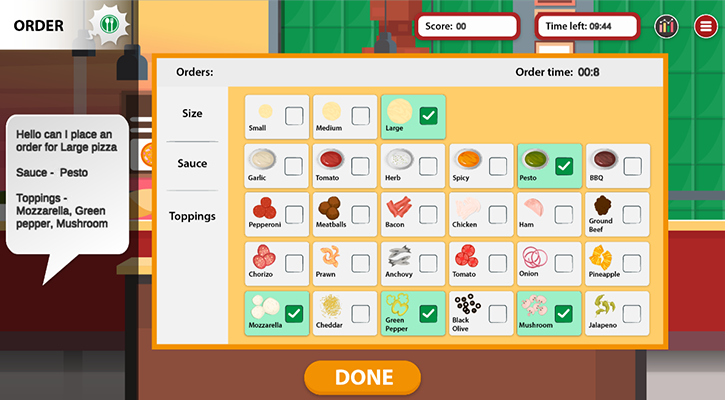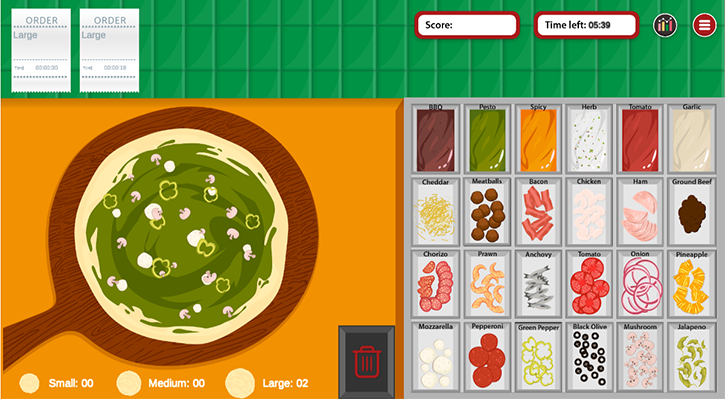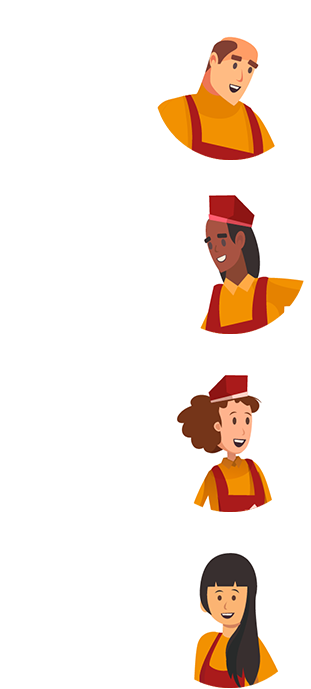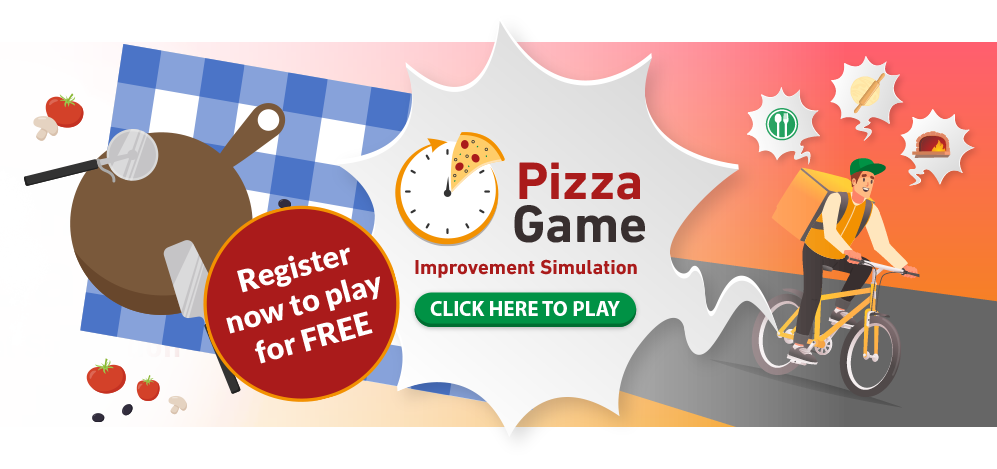
Improvement methodologies can be simple to understand in theory but difficult to apply in practice.
The Pizza Game is an iterative, team-based improvement simulation. It makes training and learning more interactive and enjoyable, it enables players to draw links between the game and ‘real world’ improvement.
It has been developed by experienced improvement experts and is intended to support learning about improvement in any industry or setting.
The game is an easy-to-use multiplayer online game for 5 people plus a facilitator. It works on any device through a web browser and can be incorporated into other planned training and improvement activities.
Groups can play the game face-to-face using individual devices. If players are in different locations, they can still play the game and communicate via Zoom, Teams or Skype. We recommend a tablet device as the minimum screen size.
Please scroll down for more information.
How does the game work?
Players must work together to run a pizza delivery company. Each player takes responsibility for a different part of the process or ‘station’:
- Taking customer orders
- Mixing dough and rolling the correct sized pizza bases
- Applying the correct toppings
- Baking the pizza
- Cutting and boxing the pizza for delivery
A performance dashboard shows how well each player is contributing to the overall success of the company.
Each round of the game lasts for either 5 or 10 minutes. At the end of each round the facilitator holds a debrief so players can discuss their performance and what improvements they could make during the next round.
The facilitator can control some basic variables within the game that could affect performance. Players propose changes to their approach or request that the host makes changes to the game settings and then test these improvements in a subsequent round.
Free 7-day trial
We are making access to the game free of charge for a limited time.
Who should use the Pizza Game?
The game was originally intended to support continuous improvement in healthcare, but it is equally effective in any sector and any organisation. The most obvious users of the game would be:
Quality Improvement Professionals: Delivering QI training and using the game as a tool to convey core QI concepts in an interactive and enjoyable way.
Quality Improvement training delegates: any member of staff or team interested in learning more about Quality Improvement practice.
The Pizza Game provides a wide range of opportunities for teams to reflect on and learn about improvement. It can also be used to support more general learning about processes, systems and teamworking.
What can the game teach?
The simulation can be embedded within existing training sessions or programmes to support learners to apply improvement principles and methods. Rounds of the game can be played sequentially within a single session or spread out throughout a teaching session or workshop.
Depending on the learning objectives, the host or facilitator may want to direct the learners reflection and learning towards specific principles or methods. This could include (but is not limited to):
- Iterative improvement: the game provides a great opportunity to teach teams about the potential of rapid cycles of improvement. Teams can apply a Plan Do Study Act (PDSA / PDCA) approach and track their improvement between rounds.
- Measurement: the game dashboard provides the host and players with potential insight into the performance of their process. The metrics show what is going well and not so well at each station as well as the overall success of the team.
- Value & Waste:the gameplay generates lots of opportunities for players to spot and address waste in a process.
- Team communication and leadership: Players in the Pizza Game can only see the gameplay at their selected station. To accrue a high overall score in the game, players will need to communicate effectively and collaborate to make improvement to the overall flow of the process.
- Flow: The Pizza Game simulates flow through a simple process or value stream. Players will experience bottlenecks, delays and queues at different stations as they attempt to succeed in fulfilling customer orders.
- Root cause analysis: an essential skill for improvers is to understand why problems occur before generating solutions. Simple tools like ‘5 Whys’ can be used to support their problem-solving process.
- Reducing variation: one of the challenges in the Pizza Game is dealing with the variation in customer orders.
- Standardisation: the game provides opportunities for players to standardise elements of their process and reflect on how this contributes to improvements.


